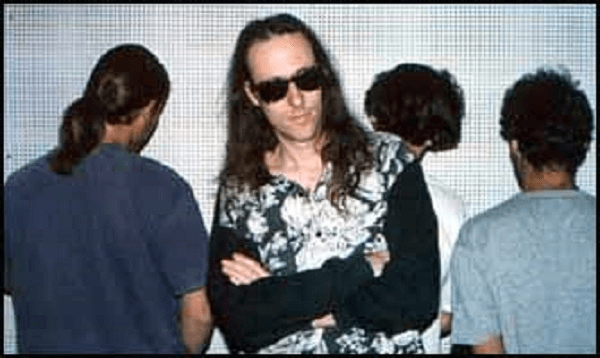Newsletter 69 copies
The year 1992
The fiery killer

A 69-copy nasty
Yaron Dekel donated his body to the army in November 1977. The army was unimpressed by the noise artillery he was able to issue, and he unhesitatingly deployed to the position of a tankist. He made the long and arduous recruits in Rafah, an armored corps, in severe sandstorms. The affair with the tanks failed. After several months of combat recruits that ended in injury and lowering a profile, the illustrious warrior found himself in the Zrifin camp as an outstanding worker in the military printing press. This inlay allowed us to do something we had long dreamed of - publishing an Israeli punk rock issue. Just like the English Sniffin 'Glue and the like. These were underground newspapers that were unprofessionally created by rock and punk enthusiasts, who put everything into their minds. Without knocking an account. Without giving in to accepted rules. A sheath.
Meanwhile, while Dekel was learning to operate printing machines, I found myself settling into Beersheba, the capital of the Negev and the depression. This happened about a year after the recruitment, and until then I managed to go through a number of crappy military adventures, including hospitalization at Rambam Hospital and then at convalescent hospital 3 in Haifa because of jaundice viruses that tried to eradicate me. In retrospect, the jaundice may have saved me from a cruel fate, since She attacked me during a secret course in which I took part in a tiny base that does not exist on the map, and some of my friends on the same course were injured or later killed in a litany operation.
Never in my life have I imagined that there is a life south of Tel Aviv. When I landed for the first time in the disgusting old central station of Beersheba, there was a terrible sandstorm in the Negev. The air was yellow. I could barely see anything, but I could see a bunch of Bedouin beggars sitting by the road at the exit. Among them was an elderly beggar with a white beard, who, after my stay in the southern city, was condemned to encounter it many more times. She resembled Baba Sally's combination with Eddie, Iron Maiden's monster.
The depression took me madly. It was the furthest place from London. Grim and rainy London was where I wanted to be.
Luckily, I spent the first night at the home of the Leibovich family, the former Haifa. If the family, Geula, was my mother's friend, and when she learned that I was going to serve in the Wild South, she immediately offered to ease my absorption. I stayed with them during my first nights in the south, until the army arranged accommodation for me outside the base. I lived in the room of my eldest son, Ronnie Leibowitz, who was then, if not my memory, a regular helicopter pilot. At home, the youngest son Gil and daughter Sarit lived. Over time, the family moved to live in Omar.
Within a short time, the army housed me in a secluded stone structure in the ancient district of the city, where I lived with other northern soldiers who served in the area. Most of the soldiers at the base came from Beersheba or from nearby places and returned home every evening. Living there allowed me to get to know all kinds of experiences and to go through experiences, which I later put into my semi-autobiographical book, The Journey.
Soon everyone learned that on the weekends when I return to Haifa, I am active in a punk-ro